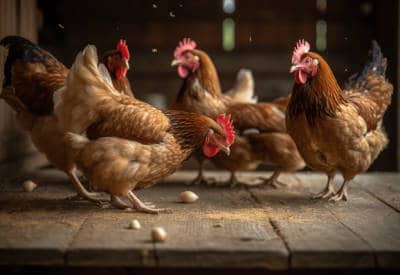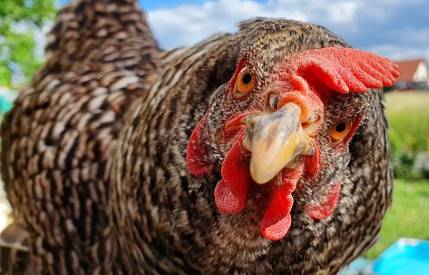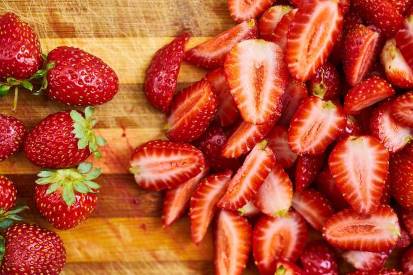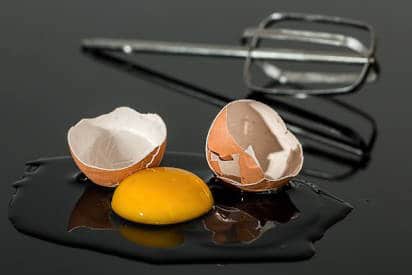Are you a coffee lover with a brood of backyard chickens? You may have wondered, as I have, can chickens eat coffee grounds? After all, it would be great to put those daily leftovers to use. As it turns out, while we humans love our daily cup of joe, coffee grounds are not recommended for our feathered friends.
As a chicken owner and coffee enthusiast, I found myself with a mountain of used coffee grounds every day. Naturally, I thought about adding these grounds to my chicken’s diet because they could offer some nutritional value. However, after an extensive deep dive into the world of chicken dietary needs and the potential effects of coffee grounds, I discovered that the risks far outweigh any possible benefits.
So, coffee-drinking chicken owners, it’s a definitive no. Due to their caffeine content and other compounds, coffee grounds are a no-go for chickens. But don’t fret; there are many other safe and nutritious alternatives for our clucking companions, which we will explore in this comprehensive guide.

Understanding a Chicken’s Diet
When we talk about our feathery backyard friends, their diet can be a fascinating study. After all, healthy hens produce the best eggs.
Basic nutritional requirements of chickens
Chickens are omnivores, just like us humans. This means they eat varied diets, including grains, seeds, fruits, vegetables, insects, and small rodents. They need essential nutrients: proteins, carbohydrates, fats, vitamins, and minerals. A diet rich in these will help chickens grow, reproduce, and maintain good health.
Impact of diet on a chicken’s health and productivity
What chickens eat directly affects their health, lifespan, and productivity. High-quality feed leads to stronger immune systems, fewer diseases, better egg production, and higher-quality meat. On the other hand, deficiencies or imbalances can lead to issues like poor growth, low egg output, or increased susceptibility to illness.
Common foods that are safe for chickens
While chickens can eat a broad range of foods, not everything is safe. Safe options include grains like corn and wheat, fruits and vegetables, and protein sources like insects or mealworms. Always do your research before introducing a new food to your chickens.
[ChickenAffiliate]
Coffee Grounds: An Overview
If you’re a coffee lover, you’ll likely have heaps of coffee grounds. But can they serve any purpose when it comes to feeding your chickens?
How coffee is made and what coffee grounds are
Coffee grounds are what’s left over after brewing coffee. They’re rich in nutrients like nitrogen, making them popular for composting or gardening.
Common uses for used coffee grounds
Aside from gardening, coffee grounds can be used in various ways. Some people use them for crafting homemade skincare products or cleaning supplies. They’re versatile but not suitable for all purposes.
Nutritional content of coffee grounds
While coffee grounds have nutrients, they also contain caffeine and other compounds. Many of these compounds remain even after brewing, potentially posing risks to certain animals.
Can Chickens Eat Coffee Grounds: The Science

Before you throw those coffee grounds into the chicken coop, let’s understand the science behind feeding them to chickens.
The effect of caffeine on chickens: existing studies and data
Caffeine isn’t good for chickens. It’s a stimulant that can negatively affect a chicken’s nervous system and heart rate. Moreover, studies have shown that chickens can’t metabolize caffeine like humans.
How chickens process foods differently from humans
Chickens have a unique digestive system. They lack teeth and use their gizzard, a specialized stomach, to grind food with the aid of grit. Some substances that are harmless or even beneficial to humans can be harmful to chickens because of these differences.
Potential toxicity of coffee grounds to chickens
Given the presence of caffeine and other compounds, coffee grounds could be toxic to chickens. Toxicity symptoms can include behavior changes, poor health, or even mortality.
Risks of Feeding Chickens Coffee Grounds

The implications of feeding chickens coffee grounds aren’t to be taken lightly.
Immediate health risks: Symptoms and signs to look out for
Immediate health risks include restlessness, increased heart rate, or seizures. If you’ve fed your chickens coffee grounds and noticed unusual behaviors, you should seek veterinary help immediately.
Long-term health implications
Chronic exposure to caffeine can lead to long-term health problems in chickens. These might include heart disease, nervous disorders, and decreased egg production.
Impact on egg production and quality
Your chickens’ diet directly affects the quality of their eggs. An inappropriate diet, including potentially toxic substances like caffeine, can lead to smaller eggs, decreased egg production, or even unsafe eggs.
Alternatives to Coffee Grounds for Chickens

If coffee grounds are off the menu for chickens, what else can you give them?
Safe kitchen scraps for chickens
Chickens love kitchen scraps. Leftover vegetables, fruits, grains, and bread are all fair game. However, scraps should only supplement their main feed, not replace it.
Commercial feeds designed for optimal chicken health
Commercial feeds are formulated to provide a balanced diet for chickens. They contain the right mix of proteins, carbohydrates, essential minerals, and vitamins.
DIY chicken feed recipes
You can make your own chicken feed if you’re up for it. Recipes typically include corn, wheat, oats, peas, and fish meal. Homemade feed allows you to control exactly what goes into your chickens’ diet.
Best Practices for Feeding Chickens
As with many things, feeding chickens is an art in itself.
Tips for feeding kitchen scraps to chickens
Kitchen scraps are a treat and should not make up more than 10% of your chickens’ diet. Also, remember that not all scraps are safe. Avoid anything salty, sugary, or processed.
Importance of providing balanced nutrition
Chickens need a balanced diet to stay healthy and productive. This means a good mix of grains, proteins, and greens. Whether you’re using commercial feed or homemade, ensure it meets these requirements.
Role of grit in a chicken’s diet
Since chickens don’t have teeth, they need grit to help grind food in their gizzard. You can buy commercial grit or use coarse sand or small pebbles.
When to consult with a veterinarian about your chicken’s diet
If you notice changes in your chickens’ behavior, egg production, or overall health, it might be diet-related. When in doubt, always consult with a veterinarian. They can provide guidance and help troubleshoot any potential dietary issues.
What Unusual Foods Can Chickens Eat?

When it comes to feeding our chickens, there’s often a surprise or two in store. Yes, they love their grains and bugs, but what about the less conventional items? Can our feathered friends safely consume these? Let’s find out.
Egg Shells
While it might seem cannibalistic at first, eggshells are a great source of calcium for chickens. Calcium is crucial for egg-laying hens as it helps them produce strong eggshells. Just make sure to crush the shells into small pieces before feeding them to prevent the habit of egg-eating among your flock.
Read More: Can Chickens Eat Egg Shells? Unscrambling The Truth
Rocks
Technically, chickens don’t eat rocks for nutrition. However, they consume small, hard materials like rocks, sand, or oyster shells as “grit.” The grit remains in the gizzard, grinding down grains and other food for easier digestion. So, yes, while not food per se, rocks play an essential role in a chicken’s digestive process.
Read More: Do Chickens Eat Rocks? Unraveling The Gritty Truth
Moldy Food
While chickens aren’t as sensitive to some molds as humans, feeding moldy food to chickens is still a bad idea. Certain molds produce mycotoxins, which can be deadly to chickens. If the food isn’t safe for you to eat, it’s not safe for your chickens, either.
Read More: Can Chickens Eat Moldy Food? Uncovering Facts You Need To Know
Diatomaceous Earth
Diatomaceous Earth (DE) isn’t food, but it’s often used in chicken coops for pest control. While it’s not harmful if chickens ingest small amounts, it shouldn’t be a regular part of their diet. Also, ensure you’re using food-grade DE, as other types can harm your chickens.
Read More: Can Chickens Eat Diatomaceous Earth? Uncovering The Truth
Crab Shells
Crab shells can be a fantastic source of calcium and other minerals for your chickens. Like egg shells, they should be crushed into small pieces before feeding. Before offering them to your chickens, cook the shells thoroughly to kill any potential pathogens. They’ll enjoy the crunch, and their eggshells will benefit from the boost.
Read More: Can Chickens Eat Crab Shells? Simple Answer & Feeding Tips
Can chickens eat coffee grounds – final thoughts
Well, fellow coffee-loving chicken owners, we’ve journeyed together through our feathered friends’ dietary ups and downs. We’ve come to understand that while those aromatic coffee grounds might fuel our morning ritual, they’re not something we should share with our backyard brood. The caffeine and other compounds in coffee grounds pose risks to our chicken’s health, affecting their behavior, egg production, and overall well-being.
But that’s no reason to be downcast. Instead, let’s channel our energies into providing our clucky companions with the best diet possible. With some knowledge and care, we can offer them a balanced menu full of safe kitchen scraps, commercially prepared feed, or even homemade meals if we’re feeling adventurous.
Related Articles:
